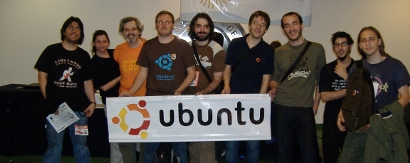
I have a quick trivia question for you all. What is this list below?
> ubuntu-ae ubuntu-af ubuntu-ar ubuntu-at ubuntu-au ubuntu-au-wa ubuntu-az ubuntu-ba ubuntu-bd ubuntu-be ubuntu-bg ubuntu-bo ubuntu-br ubuntu-ca ubuntu-ch ubuntu-cl ubuntu-cm ubuntu-co ubuntu-cr ubuntu-cu ubuntu-cy ubuntu-de ubuntu-dk ubuntu-do ubuntu-dz ubuntu-ec ubuntu-ee ubuntu-eg ubuntu-es ubuntu-es-es ubuntu-et ubuntu-fi ubuntu-fr ubuntu-ge ubuntu-gr ubuntu-gt ubuntu-hn ubuntu-hu ubuntu-id ubuntu-ie ubuntu-il ubuntu-in ubuntu-in-ap ubuntu-ir ubuntu-it ubuntu-jo ubuntu-jp ubuntu-ke ubuntu-kg ubuntu-kh ubuntu-ko ubuntu-kur ubuntu-kz ubuntu-lb ubuntu-lk ubuntu-lr ubuntu-lt ubuntu-lu ubuntu-lv ubuntu-ma ubuntu-md ubuntu-mk ubuntu-ml ubuntu-mt ubuntu-mx ubuntu-my ubuntu-ne ubuntu-ng ubuntu-ni ubuntu-nl ubuntu-no ubuntu-np ubuntu-nz ubuntu-pa ubuntu-pe ubuntu-pg ubuntu-ph ubuntu-pk ubuntu-pl ubuntu-pr ubuntu-pt ubuntu-quebec ubuntu-re ubuntu-ro ubuntu-rs ubuntu-ru ubuntu-sd ubuntu-se ubuntu-sg ubuntu-sn ubuntu-sv ubuntu-sy ubuntu-tam ubuntu-tn ubuntu-tr ubuntu-tz ubuntu-uk ubuntu-us ubuntu-us-ak ubuntu-us-al ubuntu-us-ar ubuntu-us-az ubuntu-us-ca ubuntu-us-chicago ubuntu-us-co ubuntu-us-ct ubuntu-us-dc ubuntu-us-eastcoast ubuntu-us-fl ubuntu-us-ga ubuntu-us-hi ubuntu-us-ia ubuntu-us-id ubuntu-us-il ubuntu-us-in ubuntu-us-ks ubuntu-us-ky ubuntu-us-la ubuntu-us-ma ubuntu-us-md ubuntu-us-me ubuntu-us-mi ubuntu-us-mn ubuntu-us-mo ubuntu-us-ms ubuntu-us-nc ubuntu-us-nd ubuntu-us-ne ubuntu-us-nh ubuntu-us-nj ubuntu-us-nm ubuntu-us-nv ubuntu-us-ny ubuntu-us-oh ubuntu-us-ok ubuntu-us-or ubuntu-us-pa ubuntu-us-pnw ubuntu-us-ri ubuntu-us-sc ubuntu-us-tn ubuntu-us-tx ubuntu-us-tx-dallas ubuntu-us-ut ubuntu-us-va ubuntu-us-vt ubuntu-us-wa ubuntu-us-wi ubuntu-us-wv ubuntu-uy ubuntu-ve ubuntu-vn ubuntu-za ubuntu-zh ubuntu-zm ubuntu-zw
This my friends is a mere snapshot of our [Ubuntu LoCo Team Community](https://wiki.ubuntu.com/LoCoTeams). Each one of the above is a different local Ubuntu team. We have over 180 of these teams, and these incredible vessels of local community get out there and spread the word of Ubuntu, [its ethos](https://archivedblog.jonobacon.com/2008/12/19/the-ubuntu-ethos/) and work to grow our worldwide community in those areas.
These teams span many borders, languages and races. Together thousands of different people from around the world are united by the same sense of opportunity and excitement that Ubuntu gives us all. In short, we are one big family.
But all families need to talk. All families need to communicate and share ideas. And all families need to have their sense of family regularly re-enforced. I am really keen to help bring our worldwide family of LoCo Teams closer together, and some of my work in the coming weeks will be focused on this.
Many of our LoCo family are unaware of how to share conversation and experiences with the rest of the community. I just wanted to remind everyone of how to get involved:
* **IRC** – #ubuntu-locoteams on Freenode – this IRC channel is an excellent way to chat to other teams from around the world right now. You can share stories, ask questions, learn great new ideas and just hang out with a rather cool bunch of people. To get involved, first download an IRC program. In Ubuntu, you can do this by clicking Applications->Add/Remove and installing XChat-GNOME. I am sure Kubuntu and Xubuntu people will share instructions of how to connect in those desktops in the comments to this blog entry. Next use the IRC program to connect to the Freenode network and then type in `/join #ubuntu-locoteams`. One quick tip: many IRC programs have an AutoJoin feature which will automatically join certain channels whenever you connect to IRC. Why not add #ubuntu-locoteams to the list of autojoin channels? 🙂
* **Mailing List** – [loco-contacts](https://lists.ubuntu.com/mailman/listinfo/loco-contacts) – the loco-contacts list is an excellent place to share ideas, best practice and news of what your team has done or is doing. This is a particularly useful resource for those of you who are setting up new teams are unsure of where to start. If you want to be a LoCo Legend, this is another great place to be.
I would like to encourage everyone in our LoCo Community to join one of these two resources. When we bring our world-wide family together and share information and experiences, it helps our family to not only grow, but be smarter and more adept at spread the Ubuntu ethos. Many of you have emailed me with your wonderful stories from your teams, and these two places are excellent places to also share those stories. It is these stories that inspire many new contributors and teams to join us. Lets really get this train rolling. 🙂








